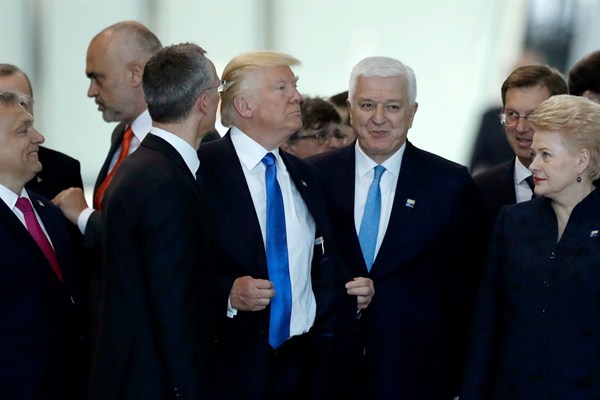When Donald Trump became the U.S. president in January, it was not clear if his foreign and national security policy would reflect the unorthodox ideas of his campaign or whether once in power he would move closer to traditional Republican positions. Trump’s just-completed foreign trip did not fully clarify that, but his prickly, almost hostile interaction with America’s NATO allies demonstrated that a foreign policy and national security revolution may be coming. As Ivo Daalder, the former U.S. envoy to NATO, put it, “This seems to be the end of an era.”
Should such a transformation occur, the clearest signs would be the abandonment of some of America’s longstanding security partnerships and a diminished U.S. role in global security, possibly leading to wholesale disengagement from parts of the world. Thoughtful commentators have advocated this for some time, arguing that American internationalism has not brought benefits proportionate to its economic, social, political and human costs. Trump is now mainstreaming this idea and codifying it into policy.
Once this transformation gains momentum, it will be difficult, even impossible to reverse it. So the old warning, “Be careful what you wish for,” rings true. Political leaders, opinion shapers and the informed public must carefully consider the likely results of American disengagement from global security and the decay of bedrock security partnerships like the trans-Atlantic alliance. They must also think about what the new security system might look like.

